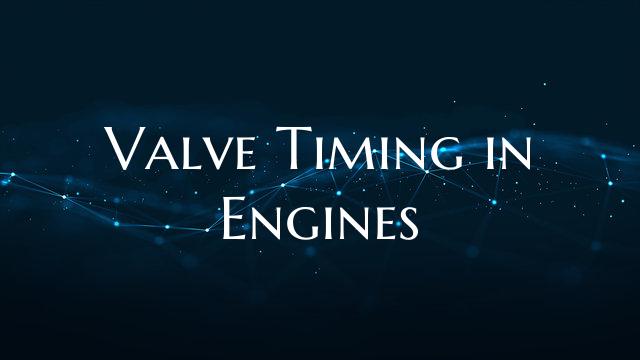Valve Timing in Engines
Valve timing is a critical aspect of engine operation that plays a key role in the overall performance and efficiency of an engine. In simple terms, valve timing refers to the precise timing at which the intake and exhaust valves open and close in relation to the position of the pistons within the engine.
Proper valve timing is essential for optimizing the combustion process within the engine cylinders. When the intake valve opens at the right moment, it allows the air-fuel mixture to enter the cylinder efficiently. Similarly, when the exhaust valve opens at the correct time, it allows the burned gases to be expelled from the cylinder smoothly.
The timing of the valves is typically controlled by the camshaft, which is connected to the crankshaft and rotates at half the speed of the engine. As the camshaft turns, it pushes the valves open and allows them to close at the precise moments required for optimal engine performance.
In engines with variable valve timing technology, the timing of the valves can be adjusted dynamically to suit different driving conditions. This allows for improved power delivery, fuel efficiency, and emissions control across a range of operating speeds.
Properly calibrated valve timing can enhance engine efficiency, power output, and overall performance. It can also contribute to lower emissions and better fuel economy. On the other hand, incorrect valve timing can result in reduced engine performance, increased fuel consumption, and potential damage to engine components.
In conclusion, valve timing is a critical factor in engine operation that directly impacts performance, efficiency, and emissions. Understanding the importance of valve timing and ensuring that it is properly maintained and calibrated are key aspects of engine maintenance and optimization.

